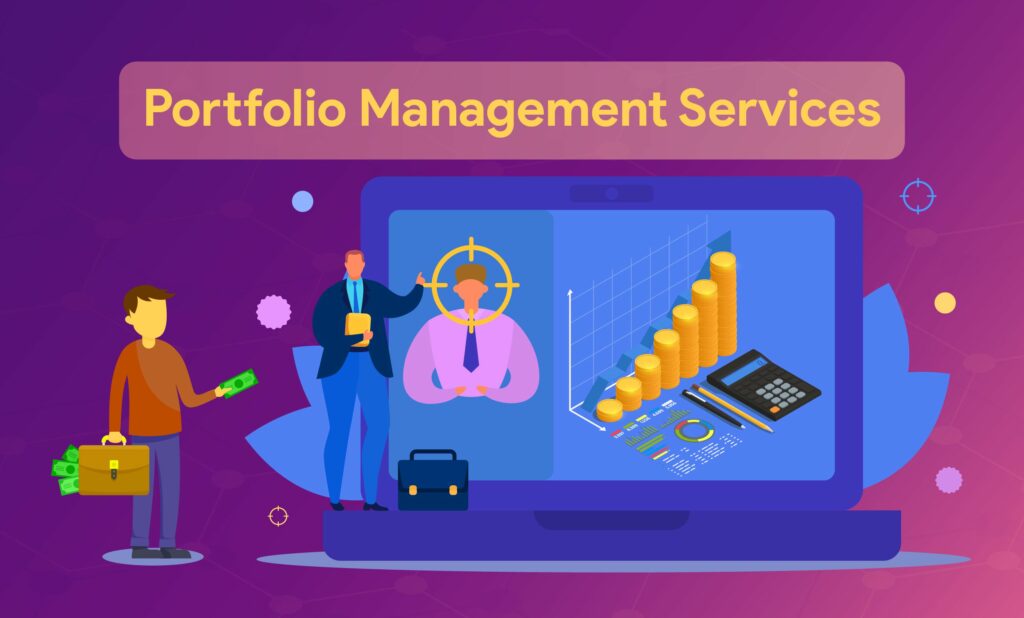We look to the stock market in the hopes of making a lot of money. However, we are frequently victims of excessive excitement and hysteria. The problem is that many investors pile on more and more stocks to their portfolios in the hopes of making greater money. Stocking up on pointless assets, on the other hand, is more likely to take you ten steps backwards than forward.
Find out Best Finance Courses on our website to learn all about portfolio management and more. Which can enhance your learning and can add value to your finance knowledge.
Among other Share Market Investment Tips, we suggest portfolio management is one of the most useful concepts to learn. So here we are to teach you important aspects of finance. Learn a few terms below.
Everything To Know About Portfolio Management


A portfolio is a grouping of projects and/or programs used to structure and manage investments at the organizational or functional level in order to maximize strategic advantages or operational efficiency. They can be managed on a departmental or organizational level.
Portfolios exist as coordinating structures to assist deployment by ensuring the appropriate prioritization of resources to align with the strategic aim and generate the best value, where projects and programs are focused on the deployment of outputs, outcomes, and benefits, respectively.
Portfolio Planning – The process of conceptualizing the creation of an investment portfolio is known as portfolio planning. The investor’s risk tolerance, investment time horizon, and portfolio projected return should all be included in the investment portfolio.
Learning portfolio management of course isn’t an easy task. One should learn the concept and practice them genuinely. For our readers, we regularly share informative posts about finance and investment with the decent piece of knowledge shared by one of the Best Financial Advisor In India Mr Ishaan Arora.
Portfolio Risk – Portfolio risk refers to the possibility that the assets or units in your investments will fail to satisfy your financial goals. Each investment in a portfolio carries its own level of risk, with a bigger potential return often implying a higher level of risk.
Successful diversification reduces portfolio risk by having a mix of investments that do not rely on the same variables to make a profit. In actuality, hazards are more likely to be minimized than completely avoided.
One of the dangers that traders should be aware of is portfolio risk. Individual investments are subject to the majority of hazards, but it’s also crucial to make sure your portfolio isn’t working against you.
Two Primary Types Of Portfolio Management:


Active Portfolio Management – The goal of an active portfolio manager is to generate higher returns than the market. Those who invest in this way are typically contrarian in their thinking. When equities are inexpensive, active managers acquire them and sell them when they rise beyond the norm.
The quantitative examination of firms to assess the cost of stock in proportion to its potential is part of active portfolio management. The active manager does this by ignoring the efficient market hypothesis and instead relying on ratios to back up his assertion.
The active manager prefers to spread investments among several areas to reduce risk. The problem with active portfolio management is that success is entirely dependent on the manager’s ability. However, if you can find one with the requisite expertise, the value investing strategy is likely to yield good results.
Passive Portfolio Management – The passive investing method is the polar opposite of active management. The efficient market hypothesis is held by those who subscribe to this viewpoint. The claim is that a company’s fundamentals will always be reflected in its stock price. As a result, the passive investor likes to invest in index funds with low turnover but high long-term value.
Your money is invested in index funds in a percentage-wise proportion to the market capitalization. This indicates that for every Rs.100 invested in the 500 funds, Rs. 2 will be invested in the company that represents 2% of the index.
Note: The goal of choosing the lesser yield is to save money on management costs while still earning through stability.
Objectives of Portfolio Management in Investing;


Capital appreciation: The primary goal of PMS (Portfolio Management Strategic) is capital appreciation, which means that the principal invested grows swiftly into a corpus while limiting risks like market volatility and tax erosion. Also, it is one of the major Investment Tips For Beginners that should be considered while entering the finance world.
Managing and handling a portfolio is one of the big responsibilities that one should take care of. Because if you want to get into the investment and finance or even if are searching for Is Finance A Good Field then this is the very first necessity that everyone should consider.
Regular income: A portfolio built with PMS often generates consistent income for the investor. Because the clientele is generally wealthy individuals, the plan should ideally be smart enough to allow them to maintain their lifestyle.
Tax Planning: Effective tax planning is part of an efficient portfolio management strategy. Different assets are taxed differently. Some investors desire monthly dividends, while others prefer capital growth. When constructing the portfolio, these considerations must be taken into account.
Liquidity: The management of liquidity is one of the portfolio management goals. Liquidity is important in a portfolio because it allows the investor to spot an interesting venture or reallocate a few assets.
Investment safety: Portfolios must be structured to reflect the risk tolerance of the investor. Amounts should be set aside to ensure adequate risk protection.
Tactical asset allocation technique under active management: According to research, markets are generally efficient because the majority of information is already priced into the stock. In the short run, this makes it difficult to predict the markets or specific equities.
Markets are, however, reasonably predictable over three to five-year intervals, according to Nobel Prize-winning research. Another way to look at it is that markets that appear to be costly today will do worse than markets that appear to be inexpensive today, and vice versa. Investors can avoid economic bubbles and take advantage of possible growth opportunities by keeping an eye on global markets.
Conclusion


Effective portfolio management entails creating the optimal investment plans for high-net-worth individuals based on their objectives, risk tolerance, and personal characteristics.
The fundamental goal is to spread risks while generating consistent profits. Portfolio managers can offer tailored investment advice and solutions. And that’s why learning portfolio management is crucial in order to become an established finance expert.

